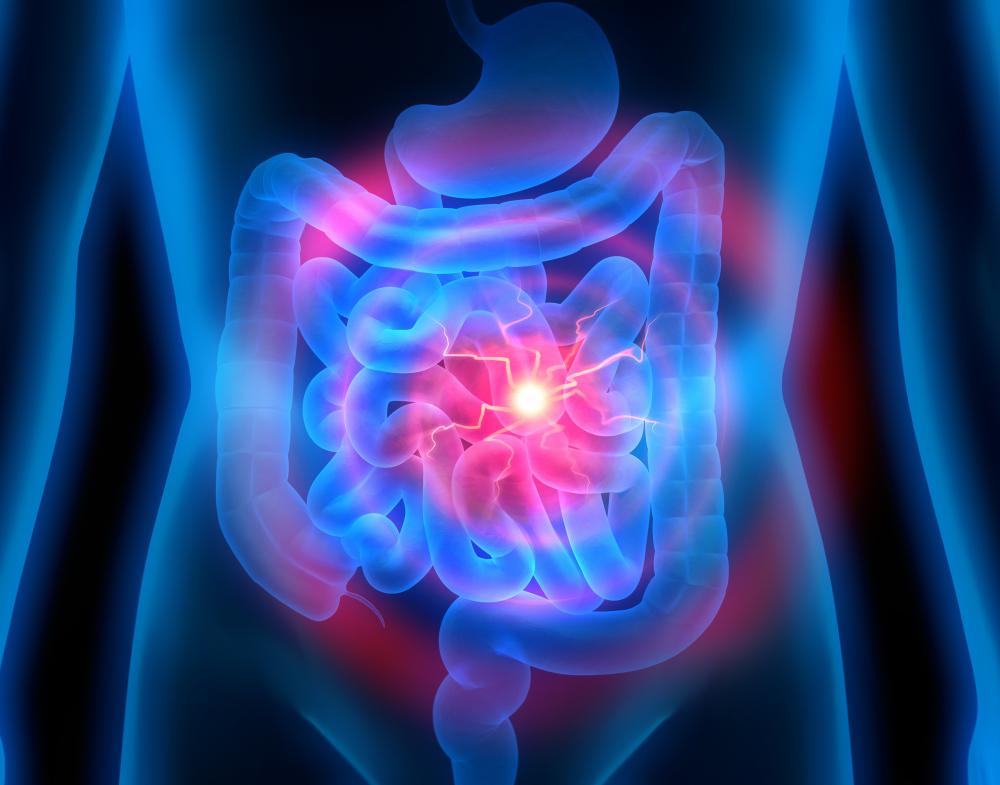At WiseGEEK, we're committed to delivering accurate, trustworthy information. Our expert-authored content is rigorously fact-checked and sourced from credible authorities. Discover how we uphold the highest standards in providing you with reliable knowledge.
What Is Peptide YY?
Peptide YY is a hormone secreted by cells in the small intestine. This hormone is directly connected to eating and is released into the blood stream after a meal, binding to receptors in the brain and causing a person to feel full. Peptide YY also works in the digestive tract, helping to control the speed of the digestive process. It is more properly known as pancreatic peptide YY, although it is also known as pancreatic peptide YY3-36, peptide tyrosine tyrosine, and PYY.
Peptide YY occurs in two forms that are nearly identical, with a difference of two amino acids. The forms are called PYY1-36 and PYY3-36. Both are released in response to food consumption and both work to help the body control food intake and digestion.

When a person eats a meal, the L-cells in the small intestine are signaled to release this hormone as a response to the food. These cells are especially sensitive to fat and protein intake, but any food will trigger them. PYY then triggers receptors in the brain, sending the body a signal that it feels full, signaling the end of a meal.
Peptide YY also slows digestion, giving the body time to absorb the nutrients contained in the food. The slower movement of food through the body also lets the person feel full longer.

The type of food that has been consumed triggers affects PYY release. Foods that are high in calories trigger the release of large amounts of peptide YY, while foods that are low in calories cause lower amounts to be released. Because PYY is released in response to eating, levels of this hormone are higher an hour or two after a meal, and they decrease with time. PYY levels are lowest when a long period has passed since a meal, such as right before breakfast after no food has been eaten all night.

Studies have shown that obese people have lower levels of peptide YY, but it appears that these levels fall after a person begins to gain weight, which means that the low levels are not the cause of the weight gain. Scientists are studying the possibility that this powerful hormone can be used to help to control obesity, as raising the levels has been shown to help people eat significantly less food at meals. More research is needed, but the appetite controlling effect of PYY may prove beneficial for helping people to regulate their weight.
AS FEATURED ON:
AS FEATURED ON:














Discuss this Article
Post your comments